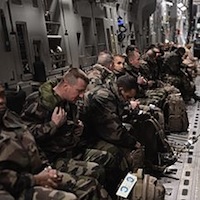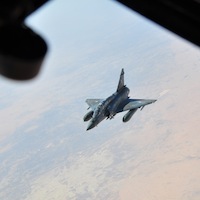This weekend, following the national drama of the Boston Marathon Bombings and metro area manhunt for the culprits, I’ve reposted & added notes to old posts on handling/prosecuting terrorists in the United States.
I wanted to add a note about Miranda Warnings because there’s been some hysteria over the fact that Suspect Number 2, who was taken alive, had not been “Mirandized” (read the standard notification of his legal rights under the Constitution and Bill of Rights) on the grounds of a “public safety” exemption to the Supreme Court-mandated advisory. First off, it bears repeating that there are no such things as “Miranda Rights.” This is a common misnomer. The rights, as mentioned above, come from the Constitution and the Bill of Rights. They were not invented by the Supreme Court’s Miranda v. Arizona decision in 1966; the court just established guidelines for a succinct set of warnings in an advisory to those being arrested so that they don’t later try to get their conviction thrown out because they weren’t notified of their right to have an attorney present and their right not to self-incriminate. Those four warnings are the ones you hear on television all the time, beginning with “You have the right to remain silent.”
Second and more importantly, he is not losing rights and no one is trampling on the Bill of Rights because the administration has invoked a “public safety” exemption and skipped the reading of the warnings. As I understand it — the “public safety” exemption on Miranda Warnings does not mean that the government will be prosecuting based on evidence obtained by statements made prior the warnings, so rights are not infringed. They usually use the exemption when they already have plenty of evidence — in this case a video has now surfaced of Suspect Number 2 placing one of the marathon bomb backpacks and walking away … so he’s going to jail no matter what he says or doesn’t say to investigators — rather they use the exemption when they want/need to find out quickly about other stuff they don’t already know. For example — they skip the warning of the right to remain silent so that they can ask if there are other bombs set to explode later or if there are other affiliated terrorists in the area. If he admits to having placed other bombs and they haven’t read him his rights, they probably can’t use that as evidence for further convictions, but they can at least find and disarm them. And at any rate, they still can’t compel the person to answer just because they didn’t officially read them their rights. Similarly, if they ask for a lawyer without prompting, the interrogation stops until a lawyer arrives. (This happened in January 2009 with Umar Farouk Abdulmutallab, when he was not Mirandized, after attempting to blow up a plane to Detroit in front of hundreds of witnesses.) Your rights remain whether or not you are advised of them. Not providing Miranda Warnings doesn’t take away rights and it can actually hinder prosecution later — so the exemption is used sparingly to obtain urgent information for public safety not to obtain new evidence for trial.
I also find it hard to believe that a 19-year-old who grew up in American culture wouldn’t know the Miranda Warnings from television — even Chief Rehnquist’s 2000 decision upholding Miranda v. Arizona that he originally opposed noted that the warnings had “become embedded in routine police practice to the point where the warnings have become part of our national culture.” He is in all likelihood well aware of his rights even if they don’t mention them. And that’s all the Miranda Warnings are: a brief mention of your rights under the law & Constitution. The rights themselves don’t change or disappear if the warnings are modified or skipped.



 The Economist ran what I believe to be
The Economist ran what I believe to be  The BBC Africa service reports that the first 200 Nigerian troops of the UN intervention force are
The BBC Africa service reports that the first 200 Nigerian troops of the UN intervention force are